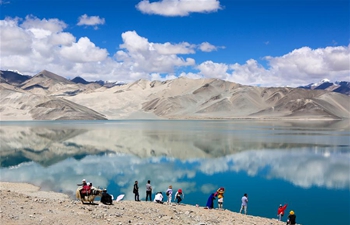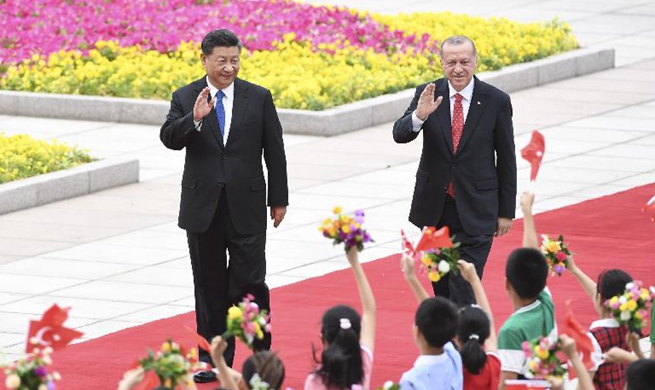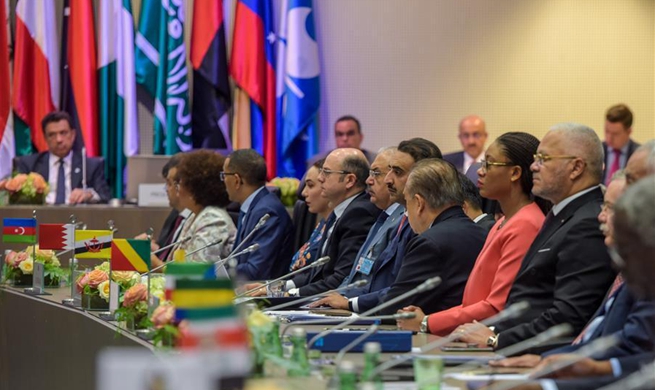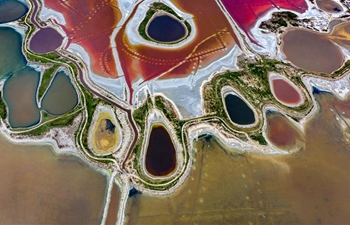by Xinhua writer Wang Jiangang
UNITED NATIONS, July 3 (Xinhua) -- In the just-concluded Group of 20 (G20) summit in the Japanese city of Osaka, Washington once again turned its back on the international community, undermining the world's collective action to combat the urgent challenge of climate change.
The United States was the only G20 member that did not sign the climate change part of the communique at the end of the summit. The joint declaration issued at the summit said that the United States "reiterates its decision to withdraw from the Paris Agreement because it disadvantages American workers and taxpayers."
Though the United Nations (UN) has been trying hard on all occasions to make world leaders aware of the urgency of climate change, the progress made in reversing the trend of global warming has been slow.
Cyclones, droughts, floods and other climate-related disasters are striking mankind with ever-increasing frequency, which scientists say have abundant evidence to prove their linkage with climate change.
The Paris Agreement on Climate Change has brought nations worldwide into a common cause to combat climate change and adapt to its effects, with enhanced support for developing countries to do so.
The central aim of the Paris accord is to strengthen global response to the threat of climate change by keeping the global temperature rise this century well below 2 degrees Celsius above pre-industrial levels and to pursue efforts to limit the temperature increase even further to 1.5 degrees Celsius.
"Climate change is running faster than we are," UN Secretary-General Antonio Guterres has highlighted his passionate viewpoint on almost all climate-related meetings or events.
Earth is set to experience its five warmest years on record from 2015 to 2019, as increasing greenhouse gas concentrations will fuel global heat, resulting in ice melt, glacier retreat, sea level rise, ocean heat and extreme weather for generations to come, according to the World Meteorological Organization.
With catastrophic cyclones such as Idai and Kenneth hitting hard the economy of countries even including Mozambique, Malawi and Zimbabwe, letting alone those lower sea level states as Maldives and Palau, human beings should be alarmed by the severity of the imminence of climate-related disasters.
For some U.S. politicians, a key reason to refuse their due global responsibilities in this regard is a self-serving and short-sighted consideration for immediate economic growth.
At-hand economic gains are critical for them to win votes. The natural disasters and extreme weathers that have hit the United States hard in recent years demonstrate how detrimental the Washington's policy of burying its head in the sand is to its workers and taxpayers.
As Europe is sweltering in record-breaking temperatures, it brooks no delay for all countries to take part in the fight against climate change. And the international community needs to stand on a united front and make concerted efforts to take care of our planet for the sake of future generations.

















